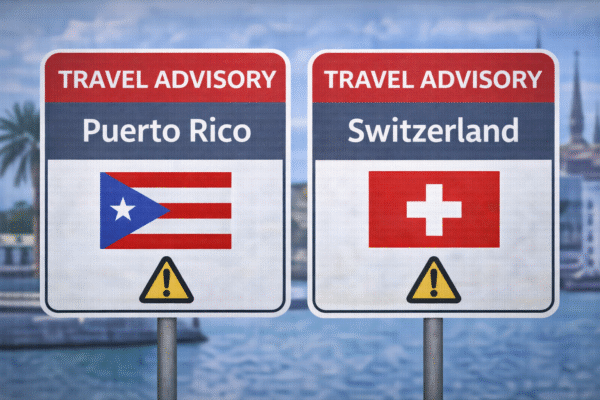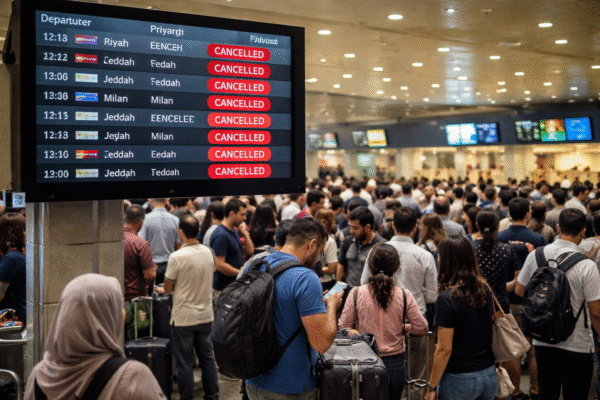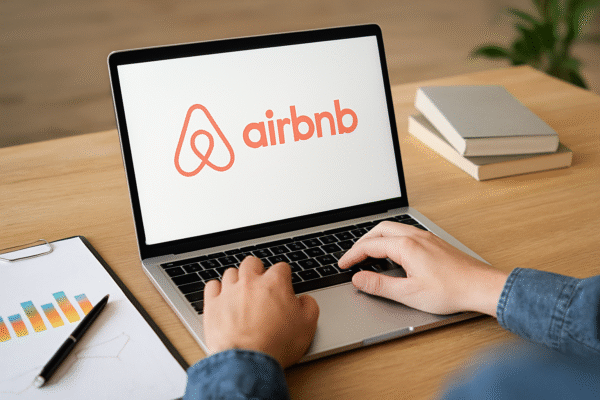Airbnb has unveiled a bold shift in its business model: the transition from a split-fee system to a 15.5% host-only single fee. This change marks a turning point in the company’s journey to better compete with traditional Online Travel Agencies (OTAs) such as Booking.com and Expedia. While guests benefit from clearer, simplified pricing, hosts must navigate new financial pressures that could reshape how properties are priced worldwide.
The Shift in Airbnb’s Fee Structure
Traditionally, Airbnb applied a split-fee model. Guests paid between 14–16% of the booking subtotal, while hosts covered around 3%. Under the new model, Airbnb eliminates guest service fees altogether, instead applying a flat 15.5% fee (16% in some regions) directly to the host’s payout.
This rollout is scheduled in phases:
- August 2025: Property management system (PMS) connected hosts begin the transition.
- October 2025: The majority of PMS-connected hosts automatically migrate to the new structure.
- December 2025: Non-PMS hosts are also shifted into the single-fee model.
For guests, the booking journey becomes simpler: no more fee breakdowns, just one upfront price. For hosts, however, the story is more complex.
What It Means for Hosts
The immediate effect is clear—hosts who previously paid about 3% will now see deductions of 15.5%. To maintain their revenue, hosts will need to raise nightly rates and service charges. Without doing so, payouts could shrink by as much as 12–13%.
For example, a booking that previously paid out $97 on a $100 stay would now require a nightly rate closer to $115 to preserve the same earnings. Property managers and hosts must adjust not only nightly rates but also cleaning fees, add-ons, and long-stay discounts to offset the larger commission.
This shift also changes pricing transparency. While guests will see cleaner totals, they may also notice rising rates without understanding why. This could create friction, particularly among repeat travelers who recall lower costs before the change.
Guest Experience: Clearer, But Possibly Costlier
For travelers, the benefit is immediate clarity. Airbnb now mirrors OTAs by showing a single total price at checkout. This reduces confusion and aligns with modern consumer expectations of straightforward pricing.
However, the simplification may come with higher room rates. As hosts adjust, some budget-conscious travelers may feel priced out. This raises the question of whether Airbnb’s reputation for affordable, authentic stays can endure under the new structure.
Airbnb’s Strategic Alignment with OTAs
By adopting a host-only fee model, Airbnb is aligning itself with the OTA standard. Booking.com and Expedia have long operated on a commission-only structure, typically around 15–20%. This positions Airbnb to attract hotel operators and professional managers who already work comfortably under such models.
Airbnb is no longer just a short-term rental disruptor; it is steadily becoming a broad accommodations marketplace. With more hotels listing on Airbnb and a pricing model that mirrors OTA norms, the platform gains new appeal with both consumers and professional lodging providers.
Challenges for the Airbnb Brand
Despite strategic benefits, risks remain. Airbnb’s unique value has historically been tied to independent hosts offering local, personalized stays. As pricing and policies align with OTAs, the platform may lose the distinctive charm that drew travelers in the first place.
Moreover, independent hosts could feel squeezed, potentially reducing supply if they choose to move toward direct bookings or alternative platforms with lower fees. Such shifts could erode Airbnb’s inventory diversity, which has been one of its competitive strengths.
Industry Ripples and Competitor Responses
Competitors like Vrbo continue to use a mix of host and guest fees, while Booking.com stays committed to a flat commission structure. New entrants in the vacation rental market are experimenting with subscription models that eliminate booking fees altogether. These alternatives may appeal to hosts frustrated with Airbnb’s rising costs, sparking increased competition across the accommodation sector.
For the travel industry as a whole, Airbnb’s move signals an accelerating convergence between traditional OTAs and short-term rental platforms. Guests gain transparency, but hosts face steeper operational costs and tighter competition.
Broader Travel Industry Context
This change is part of Airbnb’s broader strategy to become an “all-in-one” travel ecosystem. Beyond stays, the platform is expanding into experiences, local services, and concierge-like offerings such as personal chefs, spa treatments, and guided activities. By providing these bundled services, Airbnb positions itself not just as a rental platform but as a comprehensive tourism marketplace.
This diversification helps Airbnb remain competitive in a fast-changing travel landscape, but it also risks diluting its brand identity if not carefully managed.
Conclusion
Airbnb’s adoption of a 15.5% host-only single fee is more than a pricing update—it is a strategic redefinition of how the company competes. Guests will enjoy cleaner pricing, while hosts face the challenge of higher commissions.
For the travel industry, the shift blurs the line between Airbnb and OTAs, bringing new opportunities but also raising questions about identity, affordability, and host loyalty. Whether Airbnb can balance streamlined pricing with preserving its authentic travel ethos will determine its long-term success in the global tourism market.
For more travel news like this, keep reading Global Travel Wire















